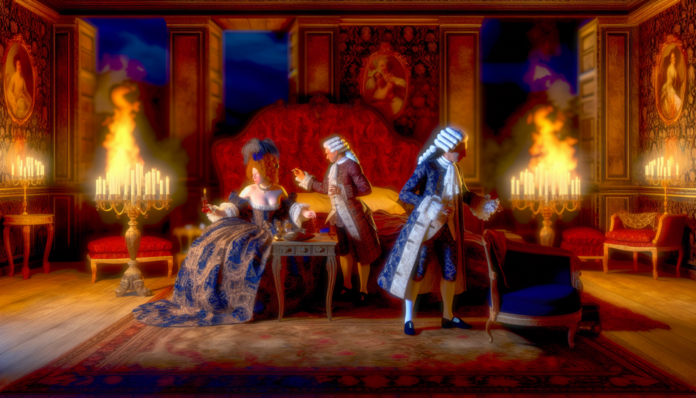Introduction
Key Figures: King Edward VIII, Wallis Simpson, and the British monarchy.
Time Period: Early 20th century, 1930s.
In a twist of fate that reshaped the British monarchy, King Edward VIII famously abdicated in 1936 to marry Wallis Simpson, an American divorcée. This scandal not only challenged the very foundations of royal authority but also reflected the societal norms regarding marriage and morality at the time. The scandal sent shockwaves through the British Empire, provoking a profound interrogation of both royal privilege and personal desire.
The Scandal
The heart of the scandal lay in Edward’s romantic relationship with Wallis Simpson, who was twice divorced. In England, where the Church of England frowned upon remarriage after divorce, Simpson’s status was a flashpoint. Edward’s open affection for her grew increasingly controversial as he resisted pressures to end the relationship.
Key Events
- Fall 1936: Rumors began circulating about Edward’s romantic involvement with Simpson, leading to intense media scrutiny.
- November 16, 1936: After a tumultuous struggle, Edward made the unprecedented decision to abdicate the throne. His abdication speech famously stated, “I have found it impossible to carry the heavy burden of responsibility and to discharge my duties as king without the help and support of the woman I love.”
- December 1936: Edward officially abdicated, making way for his brother, King George VI.
Public and Political Reactions
The public reaction was mixed:
- Supporters: Some viewed Edward as a romantic hero, prioritizing love over duty.
- Critics: Many denounced him as irresponsibly prioritizing personal desire over national duty. Prime Minister Stanley Baldwin referred to the saga as “unacceptable.”
The media coverages were relentless, with tabloids splashing headlines across their pages. A contemporary remark from one outraged citizen lamented, “A man is to be king, not his mistress’ lover!”
Moral and Cultural Analysis
The abdication of Edward VIII caused an earthquake in societal values. The reaction reflected deep-seated anxieties about the monarchy’s role and the influence of personal choice over public duty. Traditional expectations of royalty were sharply challenged.
Consequences for Those Involved
- Edward VIII: Became the Duke of Windsor, living much of his life in exile. His actions became a lasting symbol of a king who chose love over tradition, heightening debates about royal responsibilities.
- Wallis Simpson: Faced societal ostracism and often appeared in the media as a manipulative schemer. Public sentiment towards her was largely negative, a stark contrast to her eventual acceptance in elite circles.
Modern Perspective
Had the same scenario unfolded today, the reactions might differ significantly:
- Public View: With the rise of celebrity culture and examples like Prince Harry and Meghan Markle, modern societies might view the couple more sympathetically, embracing notions of love over duty more freely.
- Media Influence: Today, the situation would likely dominate social media, leading to both support and backlash across platforms, but perhaps highlighting different aspects of the narrative—like the importance of mental health and personal happiness.
The contrast between Edward’s time and contemporary society underscores a seismic shift in how relationships are perceived—especially within the context of power and public life. A king’s abdication for love might invoke admiration rather than scorn today, reflecting a more nuanced understanding of personal freedom, love, and acceptance.
The Scandal of the 1990s: The Clinton-Lewinsky Affair
Key Figures: President Bill Clinton and Monica Lewinsky.
Time Period: Late 1990s.
In a modern political drama, the affair between President Bill Clinton and White House intern Monica Lewinsky ignited one of the most infamous sex scandals in American history. This scandal not only questioned Clinton’s integrity but led to a nationwide dialogue about sexual ethics in politics.
The Scandal
The affair began in 1995, and its implications reverberated through American political life, culminating in a major investigation by Independent Counsel Kenneth Starr.
Key Events
- 1995-1996: Clinton and Lewinsky engaged in a sexual relationship during several encounters in the White House.
- January 1998: Lewinsky’s relationship with Clinton came to light after she was subpoenaed in a different sexual harassment case involving former Arkansas State employee Paula Jones.
- August 1998: Clinton infamously stated, “I did not have sexual relations with that woman,” in a televised address.
Political and Public Reactions
The fallout was immediate and dramatic:
- Supporters: Some rallied to defend Clinton, arguing the private life of a politician should remain separate from public duty.
- Critics: The scandal led to calls for impeachment. Many expressed outrage that a sitting president had engaged in such behavior. House Republicans cited “perjury” and “obstruction of justice” as grounds for impeachment.
The media frenzy was pervasive, with tabloids selling countless stories about the scandal. A popular quip from a Washington insider suggested, “In this town, you can be impeached for anything—except falling in love.”
Moral and Cultural Analysis
The Clinton-Lewinsky affair opened a Pandora’s box of discussions around power dynamics, sexual ethics, and consent in political environments.
Consequences for Those Involved
- Bill Clinton: Impeached by the House but acquitted by the Senate, Clinton’s legacy became intricately tied to the scandal, overshadowing many of his presidential accomplishments.
- Monica Lewinsky: Once vilified and shamed in the media, her life took a significant downturn. Today, she is an outspoken advocate against cyberbullying and for women’s rights, embracing her story with a nuanced perspective.
Modern Perspective
If the Clinton-Lewinsky affair happened today, society’s reaction would vastly differ:
- Public View: Greater emphasis would likely be placed on the power dynamics at play. The concept of consent and abuse of power in relationships would be scrutinized closely.
- Media Landscape: Social media would amplify the dialogue surrounding the scandal, allowing for more varied viewpoints while simultaneously risking the spread of misinformation.
This comparison illustrates how societal attitudes towards relationships, power, and ethics have evolved dramatically over time, showcasing a world increasingly aware of the complexities surrounding personal and public lives.

